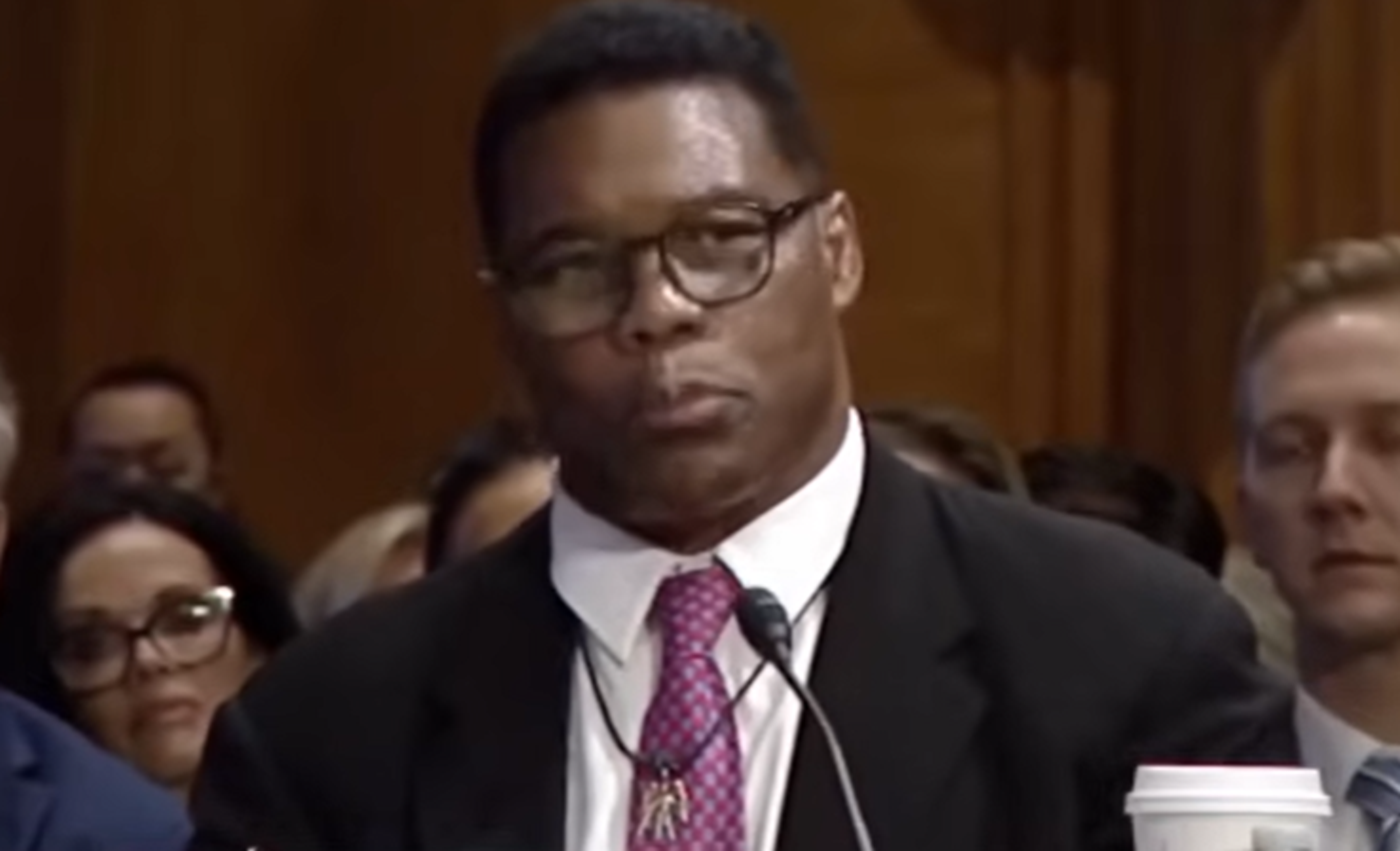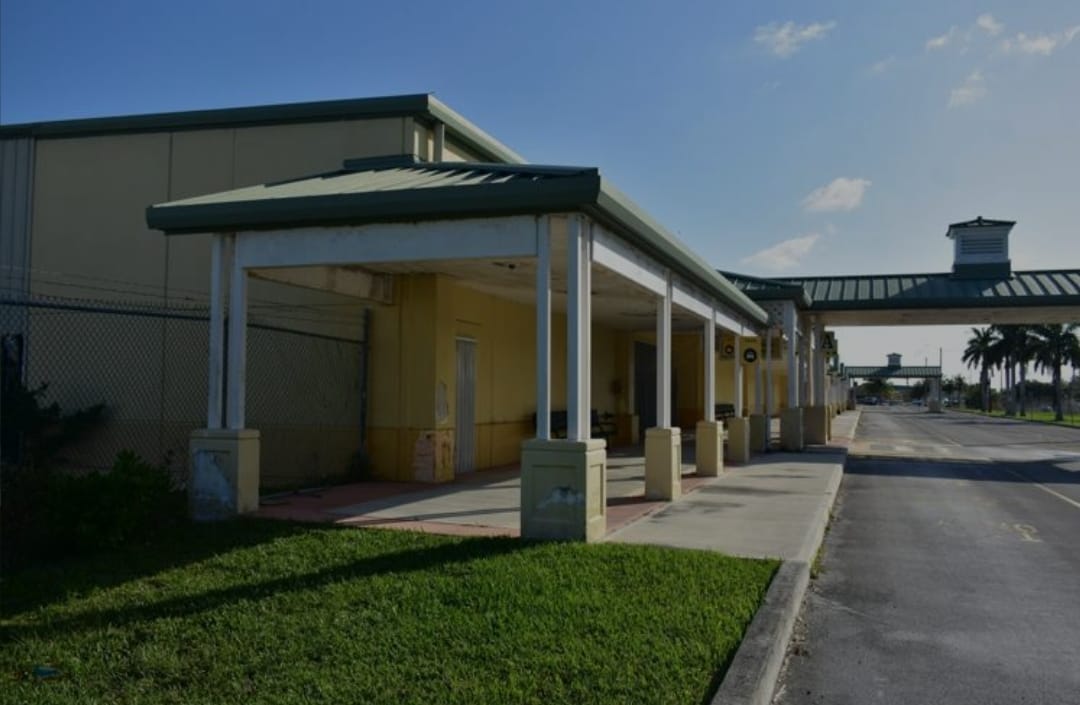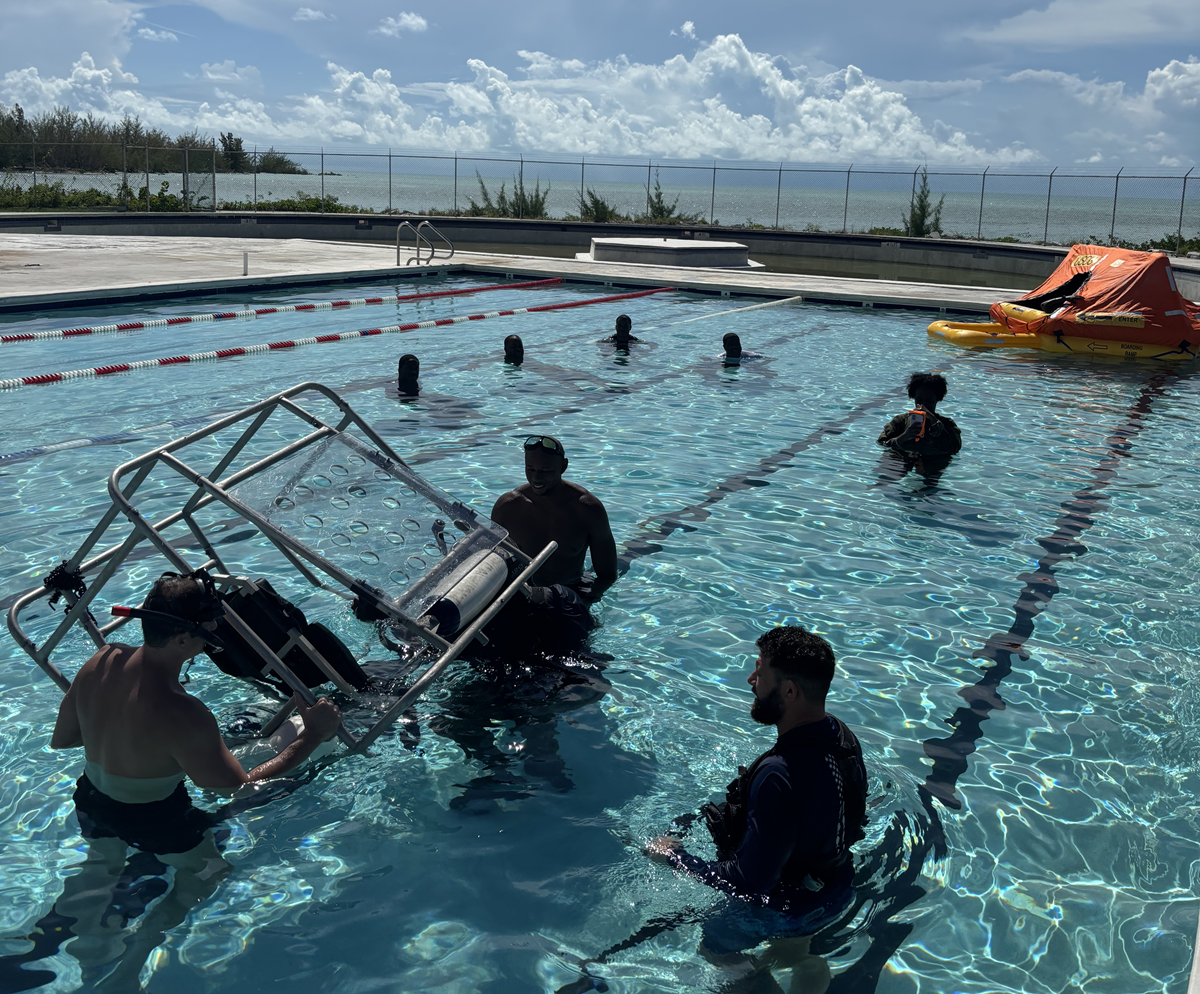Bahamas News
Communication by Bahamas PM Perry Christie on Value Added Tax
Published
9 years agoon

Bahamas, March 30, 2017 – Nassau – Background & Objectives
Mr. Speaker,
Prior to the 2012 General Election, my Government proposed, in its Charter for Governance, the most comprehensive and transformative programme of structural change in the history of our nation with a view to enhancing the economic and social prospects for all Bahamians. During our current mandate, we have diligently pursued the implementation of this programme of change.
In doing so, we acknowledged that, given its breadth and depth across all areas of society and Government, this programme represented more than a five-year agenda of action geared to the traditional election cycle. Our focus has, therefore, not been narrowly centered on short-term gains geared to the political cycle since such victories, by their very nature, invariably fail to survive the test of time. To the contrary, we have over the past five years steadfastly maintained a policy focus on the fundamental and durable long-term economic and social objectives articulated in our Charter.
When we came to office in 2012, we quickly discovered the extent to which our public finances had been allowed to deteriorate during the previous Administration’s mandate. We were, therefore, clear from the outset that redressing the public finances was a primordial requirement for securing an improved future for our citizens. In other words, a fiscally sustainable Government is a fundamentally necessary condition for the advancement and development of our economy and society.
Tax Reform, Introduction and Impact of VAT
Mr. Speaker,
There has been much conversation that the Government promoted VAT as a mechanism to reduce the debt and the Government has reneged on this commitment. This line of conversation is misguided.
To repay debt, the Government must first address the root cause of continued debt accumulation. If we spend more than we earn we must borrow. We were spending more than $500 million than we earned in 2012. Today we have reduced this excess of spending over earnings to an average of less than $400 million and excluding natural disasters to an average of less than $250 million. Therefore debt accumulation has decelerated.
Mr. Speaker,
We accomplished this reduction by developing and introducing early in our term a detailed Medium-Term Fiscal Consolidation Plan that is designed to bring order to the public finances and gradually lead to lower levels of Government Debt in a balanced and targeted fashion, with policy action in respect of both expenditure and revenue.
The Medium Term Fiscal Consolidation Plan includes plans to further enhance revenues, while enabling economic growth and expenditure with breakeven projected for FY 2018/2019. Surpluses are projected thereafter and the decline in debt would be observed. If there was deficiency for fully articulating this clearly, the Government accepts this criticism and is now laying out the full account of how VAT would repay the debt.
Any financial person or purported financial person that suggests there was reasonable expectation that debt levels would decline immediately with the implementation of VAT is being disingenuous at best and deceitful at worst. The world is watching us, let us demonstrate our collective intelligence and not our selfish motives when we discuss our fiscal affairs. Our general public expects nothing less.
Mr. Speaker,
In line with the Medium Term Fiscal Consolidation Plan, the Government has implemented the most fundamental and progressive reform of the fiscal and tax systems in the history of the nation. This programme of reform has been a resounding success in producing the significant improvement in the revenue yield of our tax system that is vitally necessary to support sound and sustainable fiscal policies, including deficit and ultimately debt reduction, and improving modern governance in The Bahamas.
The cornerstone of tax reform has been the implementation of a Value Added Tax that was thoroughly designed, planned and implemented after the widest public consultation and on the basis of expert international advice, as well as best practice and experience with VAT systems in a number of other countries.
This process of consultation on VAT was the most progressive act of collaboration between:
- The private sector that is the creator of economic activity;
- The general public that must bear the cost of taxes but ultimately benefit from the programmes that taxes enable the Government to provide;
- Your Government of The Bahamas that is tasked with enabling an environment for economic prosperity while ensuring that what is done is be for the least of us is done befitting the royalty among us.
Mr. Speaker,
The consultations included the provision of time for the private sector to research alternatives that it had proposed, principally payroll tax as well as VAT. Their own research not only supported VAT, but it was empirically demonstrated to those that had doubts that such implementation would not doom the economy. The research also enabled the private sector to make recommendations on rate (7.5%) and limitations on exemptions. All of these matters were comprehensively discussed and the private sector lent its overt support for the implementation of the VAT system and the education of the general public.
Mr. Speaker,
Is there ever a previous time when such public private sector partnership has been so vibrant? My Government maintained responsibility but employed the collective wisdom of the stakeholders in the country.
As a result, the Bahamian VAT was introduced in an impressively smooth fashion and the tax has generated a more buoyant stream of revenue than had originally been expected. Over the first two full years of its existence, the VAT has produced some $1.1 billion in gross revenues. This, in turn, has contributed to an important improvement, as desired and planned, in the revenue yield of our tax system, from 17.2 per cent of GDP in 2013/14 to a projected 23.7 per cent of GDP for this fiscal year in the last Budget. Such a level for the revenue yield is more in line with that in other regional and first world economies and more suitable to modern governance in the 21st Century.
Mr. Speaker,
In introducing VAT, we expressly stated that we would, based on collections experience with the new VAT, introduce reductions in other taxes to the extent feasible.
We have, therefore, been crystal clear that our programme of tax reform, including the introduction of VAT in 2015, has manifold objectives.
First, tax reform and VAT per se as a new source of revenue have unquestionably been targeted to secure a significant improvement in the public finances of the country through, for example, lower levels of the GFS Deficit and ultimately lower levels of Government Debt.
Second, tax reform, including VAT, has been designed to produce an appreciable improvement and stability in the revenue yield of our tax system—enabling the Government to more effectively and sustainably finance modern programmes and services for our citizens. By stability, I am referring to improvement and consistency in collection rates, as VAT has the highest compliance rate of any tax system in The Bahamas, and by capturing the broadest base to be taxed; no goods or services are excluded with limited exceptions.
Third, the VAT, specifically as a new revenue source, has been instrumental in facilitating reductions in the tax burden of consumers and businesses in respect of the other major taxes, which I identify later in this Communication.
And fourth, VAT was introduced as a central component of our tax reform plan as it has been shown to be more supportive of stronger economic growth and job creation, as compared to other tax policy alternatives.
Issues
Mr. Speaker,
In light of the central role of the VAT in the Government’s programme of tax reform and its impressive success in generating much-needed new revenues, it does not come as a surprise that the VAT has garnered a good deal of public attention and discussion since its introduction, and especially in recent months.
Accordingly, the principal objective of this communication is to bring clarity to the main issue in respect of the VAT that has featured prominently in public discussions, and that is – how has the VAT revenue been utilized?
This is essentially a question about financial transparency and accountability, both of which are of vital importance to modern democratic governance. These are issues that most definitely need to be addressed and clarified for the benefit of our citizens. This Communication addresses these issues.
VAT Revenues
Mr. Speaker,
In reviewing the matter of VAT, I will begin with the issue of transparency and accountability in the public finances, and specifically in respect of VAT revenues. The simple truth of the matter is that the Constitution of The Bahamas, the Financial Administration and Audit Act (FAAA) and our various programme and revenue laws provide for the transparent accounting of all Government expenditure and the collection, accounting for and utilization of every dollar of revenue.
As well, the Government’s Budget provides an annual statement on detailed expenditure and revenue plans for the coming fiscal year, as well as data on actual outturns for both expenditure and revenue for recent prior years.
According to Article 128 of the Constitution, all revenues of the country are to be paid into the Consolidated Fund. As such, revenues from any one source are to be indistinguishable from revenue from any other source. Faithful to this article of the Constitution, the Value Added Tax Act specifically stipulates, in section 12. (9), that all VAT revenues collected will be credited to the Consolidated Fund and none are therefore to be earmarked for any specific purpose. VAT revenues are thus comingled with all other revenues in the Consolidated Fund and therefore are but one component of the Government’s fiscal plans that are presented to Parliament every year and, as such, they contribute to the financing of the Government’s expenditure and also contribute to the attainment of the Government’s key fiscal objectives in respect of eliminating the GFS Deficit over time and reducing the level of Government Debt to the comfortable levels of the past.
Mr. Speaker,
In the context of the discussion of the allocation of VAT revenues to the Consolidated Fund and the subsequent utilization of moneys from the Fund for the purpose of public expenditure, it is important to note that Article 136 of the Constitution provides for the office of the Auditor General appointed by the Governor General, to audit annually the accounts of the Government and prepare a report, and for audits to be tabled in the House of Assembly. Importantly, the Auditor General shall not be subject to the direction or control of any person or authority in the preparation of his audits and reports. In addition, the FAAA contains clear provisions in respect of fiscal accountability and transparency.
Mr. Speaker,
The question then arises as to how the Government has chosen, in the development of its annual fiscal plans, to make use of the additional revenues that have accrued from the VAT.
In simple terms, I will set out how much we have collected in the first two years of the VAT, which is the gross revenue amount, how much VAT refunds have been generated in the same period, and the financial impact of the business licence, property tax and customs and excise duty reductions which were part of the tax rebalancing initiatives accompanying the introduction of the VAT. I will present the reduction in the deficit that has been facilitated by the additional VAT revenues in the context of our overall fiscal plan. To close out the analysis, I will also highlight some of the social and other programmes that have received increased funding during the last two years.
Mr. Speaker,
In the simplest terms, VAT revenue goes towards three (3) things: tax reductions; funding of expenditure, and deficit and debt reductions being the residual outcome.
As I mentioned earlier, and as is detailed in Table A, some $1.14 billion was collected in respect of the VAT in 2015 and 2016. Of this total, the Department of Inland Revenue collected $726 million: $316 million in 2015 and $410 million in 2016. The Department also refunded some $20 million in VAT over these two years. The Department of Customs collected $415 million over the two-year period: $209 million in 2015 and $207 million in 2016. Table B sets out the details of VAT collections, by month, for both 2015 and 2016, delineated by source, namely from monthly filers, quarterly files, bi-annual filers as well as VAT collected on conveyances and VAT collected at Customs.
As was explained above, since VAT introduction, the Government has announced a number of tax relief measures, which have naturally led to reductions in the Recurrent Revenue of the Government. In this context, I would note that the first tax reduction announced was in respect of the Hotel Occupancy Tax that we chose to eliminate at the introduction of VAT, since the latter would now be applicable to hotel accommodations, though at the lower rate of 7.5 per cent rather than the previous 10 per cent. With the elimination of the Hotel Occupancy Tax, some $42.5 million in annual revenue has been foregone, for a two-year total of roughly $85 million or 7% of the total VAT collections.
Mr. Speaker,
With the implementation of VAT in January 2015, and with the FY2015/2016 Budget implemented in July of 2015, the Government began the process of paying back to Bahamians some portion of the dividends from our successful VAT regime, thereby providing much-needed tax relief. Among the measures announced were:
– change in the calculation of customs duty, from a CIF (Cost Insurance Freight) to a FOB (Free on Board) basis;
– the outright elimination of import duties on several items;
– duty reductions on several other items;
– the maximum duty on motor vehicles was reduced from 85 per cent to 65 per cent;
– duty exemptions under the Family Island Development Encouragement Act were extended for another year and Abaco, the east and west sections of Grand Bahama, Eleuthera and Bimini were added to the list of qualifying areas;
– duty concessions under the City of Nassau Revitalization Act were extended for another year;
– a reduction in the top property tax rates on owner-occupied residential properties, from 0.75 per cent to 0.625 per cent;
– more pronounced property tax relief for pensioners in mid-value properties;
– a 10 per cent discount for persons who pay property tax early each year;
– a moratorium of 6 months for the waiver of Real Property Tax surcharges on residential properties for persons who pay tax in full or make arrangement to do so;
– harmonization of commercial property tax rates at a lower level of 0.75 per cent;
– a reduction in the maximum rate of Business License fees, from 1.75 per cent to 1.5 per cent, plus a reduction in rates to 0.75 per cent for agricultural and fisheries operated businesses, food, meat and fruit processing and independent fuel distributors in the Family Islands;
– Stamp Duty on real estate transactions was lowered to 2.5 per cent, with the VAT applying only to properties above $100,000;
– As well, VAT registrants will be able to claim a credit for VAT on transfers whereas they could not do so under the previous Stamp Tax regime.
Mr. Speaker,
In the 2016/17 Budget, our efforts to provide additional tax relief for consumers, businesses and property owners, continued with:
– elimination and reduction of import and excise duties on a number of consumer goods and building materials;
– expansion of tariff concessions for light manufacturing;
– extension of duty exemptions under the Family Island Development Encouragement Act and the City of Nassau Revitalization Act for another year;
– Real Property Tax concessions granted to residential properties were extended to commercial properties; and
– Real Property Tax arrears waivers were granted to owner-occupied properties under $250,000, in certain situations.
The highlights of the revenue foregone as a result of these tax relief measures are as follows:
Customs and Excise Duties (2015 & 2016) -$86.0M
Customs and Excise Duties (2016) -$48.9M
Change to Free On Board for Customs and
Excise duty calculations (2015& 2016) -$60.00M
VAT on conveyances under $100,000 -$ 7.0M
RPT property tax rate changes:
Owner-occupied -$0.7M
Residential -$0.5M
Commercial -$2.5M
Business License rate from 1.75% to 1.5% (2016 & 2017) -$38.2M
Real Property Tax waiver order (under $250,000) -$14.0M
Real Property Tax amnesty -$0.2M
Real Property Tax pensioner discount -$0.2M
Including the fiscal impact of the elimination of the Hotel Occupancy Tax ($85.0 M), and VAT refunds ($20.0M) the total reductions is $344 million in foregone revenue since VAT introduction. Therefore, VAT gross collections over the 2 year period were $1.1 billion but the net impact on revenues to the Government was $756 million. By any measure, a remarkable achievement while maintaining a stable economic environment. VAT was introduced without triggering a major economic contraction despite all of the naysayers prognosticating about doom and gloom. This is worth repeating. VAT was introduced without a recession!! A stable economy has been maintained with the support of the private sector.
Mr. Speaker,
In order to gauge the Deficit impact, it is necessary to begin by estimating the levels of GFS Deficit that would have prevailed, in the absence of the Government’s fiscal actions since VAT introduction in January 2015. As such, we wish to consider the three-year fiscal period, from 2014/15 to 2016/17 which, I would note, includes the second half of the current fiscal year. We assume that, in the absence of Government fiscal action, the fiscal structure that my Government inherited from the previous Administration would have continued to operate, in terms of the key indicators’ proportions to GDP, that is: Recurrent Expenditure at 20%; Capital Expenditure, at 4.2% and Recurrent Revenue, at 16.3%. Debt redemption and nominal GDP are assumed to remain at their actual levels.
On the basis of these assumptions, it is estimated that the GFS Deficit over the three year-fiscal period, 2014/15 to 2016/17, would have averaged near $500 million per year or totaled $1.5 billion. The actual average GFS Deficit over this same period placed at $337 million, for a three-year total of $1 billion. Indeed, the latter estimates would have been significantly lower, if we had not experienced weaker-than-expected economic growth and the two major hurricanes during this period. Using these assumptions, it can be concluded that the actions in the Government’s Medium-Term Fiscal Consolidation Plan, which included the new VAT, net of the other tax reductions and expenditure increases, have secured a reduction in the GFS Deficit of near $500million. This means that $500 million of the VAT revenue went to deficit reduction.
Mr. Speaker,
The residual amount that went towards expenditure is $256 million of the VAT revenue.
In this respect, it is important to note that over the past two years, the Government has also implemented additional funding for some of our important social and other public programmes. The most significant funding focuses on areas such as national security, health, education and social services.
Since the implementation of VAT, the Government has hired an additional 99 Police Officers at $1,782,000 per annum (during FY 2015/2016); it has hired an additional 166 Defence Force officers at $2,988,000 per annum (during FYs 2015/2016 & 2016/2017), it has employed 347 more teachers and education support staff at $8,400,500 per annum (during FYs 2015/2016 & 2016/2017); and it has hired 103 additional doctors and health professionals at $2,932,550 per annum (during FYs 2015/2016 & 2016/2017).
These vital expenditures would not be possible without VAT revenue. Nor would it be possible to service the debt associated with the acquisition of the vessels from the RBDF, at $25 million a year, or purchase a new immigration, border control and passport system at a combined cost of $33 million, of which $5.8 million was paid in this fiscal year. Nor would it have been possible to purchase a new Road Traffic system, at $8.3 million, of which $1.9 million has been paid off this fiscal year, and four new Doppler radars at $23 million, of which $7 million would be discharged this fiscal year.
Mr. Speaker,
In summary, 40% of the VAT revenue went towards reducing the deficit, 30% replaced revenue foregone from tax reductions and the remaining 30% went towards general expenditures. These figures are included in Table C attached to this Communication.
This Table and the accompanying graph is designed to give a layman a clear understanding that the VAT revenue is not frittered away, but goes directly towards improving the livelihood of Bahamians.
Conclusion
In conclusion and, as was stressed earlier in this Communication, transparency and accountability are of fundamental and critical importance to modern democratic governance. Our citizens expect and rightfully deserve a full and clear accounting for the dollars in taxes that they pay to their Government each and every year.
In this respect the Government has embarked on project costing $33 million to enhance the financial reporting systems and to adopt modern accounting standards to further enhance the quality of information and the format of its presentation. VAT has actually contributed to greater transparency through a greater understanding of the Bahamian economy and the support in financing the improvements in reporting of financial information.
Unfortunately, it is evident from recent public discussions that there is a worrisome and counter-productive degree of misconception and misapprehension in respect of the public finances in our country, and of the use of VAT revenues, in particular.
This Communication has sought to bring clarity to these matters, with supporting data and in straightforward language. The ultimate objective is to enhance public understanding and appreciation of the extent to which transparency and accountability in our public finances are solidly embedded in the Constitution and laws of our nation. Every single dollar of revenue is fully accounted for each and every year and is subject to audit by the independent Auditor General. As such, not one dollar of VAT revenues collected over the past two years has been frittered away or spent surreptitiously. That is a grave and nonsensical misconception that, once and for all, must be put to rest.
Mr. Speaker,
This Communication has also reiterated the various objectives of revenue enhancement through VAT implementation, and has highlighted, with supporting data, the extent to which new VAT revenues have: first, facilitated additional Government spending in priority areas, and in response to adverse economic and natural events; second, accommodated reductions in other major taxes for consumers, businesses and property owners; and third, directly contributed to significant reductions in the GFS Deficit over the past three years.
Put further in layman’s terms, if I reduce the amount by which my expenditure exceeds my revenue, the less money I borrow. This is a slowing of debt accumulation. As my revenues start to exceed my expenses which are projected to take place FY 2018/2019, there would be an actual reduction in debt. However, to be clear every year an element of expenditure is the servicing repayment of Government debt and therefore if the Government has been able to repay debt without having to borrow as much, we are on the right fiscal trajectory.
Mr. Speaker,
I have made clear today that we believe it is the Government’s responsibility to explain as clearly as possible how the revenues that come into our government are utilized. This communication is one way of reaching out to citizens. We also are announcing today a new website, UnderstandingVAT.org, where Bahamians can find the text of this communication, answers to the questions that occur most often in connection with VAT, as well as links to budget and other documents, so that they can see for themselves the details of the tax relief, the deficit reduction and the investments in our country that all have accompanied the introduction and implementation of VAT.
Our nation has faced and continues to face important economic and social challenges. Through its Charter for Governance pursued during its current mandate, my Government has demonstrated that it has the vision for the future and the action plans needed to improve the quality of life for all Bahamians. A great deal of fundamental and needed change has been initiated and implemented over the past five years. The Government is steadfastly dedicated to further pursuing and completing its change agenda in the period ahead. May God Almighty guide us along that path.
#PMChristieonVAT
Photo credit: Bahamas Press
You may like
Bahamas News
Next U.S. Ambassador? Walker Pledges Business-Driven Approach as U.S. Looks to Counter China in The Bahamas
Published
2 weeks agoon
September 16, 2025
Deandrea Hamilton | Editor
The Bahamas, September 16, 2025 – For the first time since 2011, the United States is on the cusp of sending an ambassador to The Bahamas — and the nominee, former football star turned entrepreneur Herschel Walker, is promising to bring his business instincts to the diplomatic table.
Speaking before the Senate Foreign Relations Committee last week, Walker underscored that his background in food-service companies and small business leadership has prepared him to think practically about investment. “I know how to run a business, how to create jobs, how to make payroll. Those lessons translate into building relationships and building trust,” Walker said.
Walker, who was nominated by President Trump in December 2024, faced the Senate Foreign Relations Committee on September 11. As of now, he has not yet been confirmed; his nomination remains under review, pending a committee vote before it can move to the full Senate. If approved, he would become the first U.S. ambassador to The Bahamas since 2011.
For years, U.S. officials have stressed security and counternarcotics cooperation with The Bahamas, including through “Operation Bahamas, Turks and Caicos.” But in areas like infrastructure, medical care, and long-term investment, Washington has often been absent.
Hospitals and clinics remain under-resourced, and hurricane recovery has been slow in many islands. Chinese state-backed firms, by contrast, have shown up with financing packages and construction deals — a presence that has raised alarms on Capitol Hill.
“Only 50 miles off our shore, The Bahamas is too important for us to ignore,” warned Senate Foreign Relations Committee leaders during Walker’s hearing. They called China’s inroads “strategic, not charitable,” suggesting Beijing’s long game is about ports, proximity, and political leverage.
Walker positioned himself as a nontraditional but pragmatic envoy. He argued that his business career, rooted in private sector success, equips him to champion American investment in The Bahamas.
He pledged to:
- Promote U.S. companies interested in medical and infrastructure projects.
- Support an environment that encourages American investors to see The Bahamas as more than just a beach destination.
- Highlight opportunities for partnerships that improve public services, healthcare, and resilience against hurricanes.
“I’ve built businesses. I know what it takes to attract investors and create opportunity. That is exactly what I intend to bring to our relationship with The Bahamas,” Walker said.
The Bahamas is not just a tourist paradise. It’s a frontline state in migration, drug interdiction, and hurricane response. More than six million U.S. visitors travel there annually, making stability and safety a U.S. domestic concern as much as a foreign policy one.
million U.S. visitors travel there annually, making stability and safety a U.S. domestic concern as much as a foreign policy one.
And yet, with the ambassador post vacant for 14 years, the U.S. has often looked detached — opening space for China’s ambitious Belt and Road agenda. The fear is that infrastructure deals signed today could give Beijing leverage in the region tomorrow. Walker’s confirmation would symbolize a course correction, signaling Washington’s intent to re-engage not only in security but in the economic future of The Bahamas. Not everyone is convinced Herschel Walker is the right man for the job. His nomination revived controversies from his 2022 Senate run, including past allegations, public gaffes, and doubts about whether he has the diplomatic polish the post demands. Some senators and analysts questioned whether celebrity and business experience were enough for a role requiring nuance in foreign policy and geopolitics.
Critics argued that The Bahamas, sitting just 50 miles from Florida and facing intense Chinese interest, deserves a seasoned diplomat rather than a political ally.
Walker confronted those doubts head-on. “People have underestimated me all my life — in academics, athletics, and business,” he told the Senate Foreign Relations Committee. “And I have always proven them wrong, through discipline, determination, and by outworking everyone.”
He admitted he had never served as an ambassador but countered that his career prepared him in other ways: building businesses, managing payrolls, and connecting with people from all walks of life. He framed his business background as a strength, promising to use it to encourage U.S. investment in healthcare, infrastructure, and hurricane resilience projects in The Bahamas.
Rather than sparring with critics, Walker leaned on confidence and persistence: “I know how to build trust and find common ground. That’s what this relationship needs.”
If confirmed, Walker would have to balance his role as diplomat with expectations of being a commercial cheerleader for U.S. firms. His emphasis on entrepreneurship suggests a willingness to push U.S. businesses toward opportunities in healthcare, ports, and post-storm reconstruction — areas where Bahamians say they need the most support.
For Bahamian officials, the question will be whether Washington is prepared to back words with financing. U.S. private sector dollars, paired with aid and development partnerships, could help shift the tide against Chinese influence.
For Walker, the test will be whether his business acumen can translate into diplomatic wins — giving Bahamians alternatives to Beijing, while deepening the U.S. role in the Caribbean.
Analysis: If Walker delivers, this appointment could mark a turning point: a U.S. strategy that recognizes that in the Caribbean, investment is diplomacy.
Bahamas News
Conflicting Reports as Grand Bahama Awaits Its New Airport: What to Believe?
Published
2 weeks agoon
September 16, 2025
Deandrea Hamilton | Editor
September 16, 2025 – Grand Bahama’s wait for a modern international airport has taken another dramatic turn. Just days after reports surfaced that the $200 million redevelopment had collapsed because partners failed to secure financing, the government is now insisting the project is alive and well — with funding in the “final stages” and construction on the horizon.
Earlier This Week: Airport Deal in Dire Straits
The week began with grim headlines. Deputy Prime Minister and Aviation Minister Chester Cooper confirmed that private partners in the much-heralded consortium had not produced financing. “Regrettably, the funding had not happened,” he admitted, sparking widespread fears the deal had crumbled.
Those admissions triggered a storm of skepticism in Freeport. Back in February, the government had declared the airport deal “finalized,” naming Aerodrome Ltd., Manchester Airport Group, and BHM UK as partners. They promised demolition within 30 days, designs in 45 days, and a new terminal by year’s end. But now, more than four months later, not a single milestone has been delivered.
For residents and business leaders, the collapse narrative confirmed their worst fears: that Grand Bahama was once again being strung along with empty promises. Long-stay tourism — the kind that sustains hotels, restaurants, taxis, and shops — depends on a functioning airport. Without it, the island’s economy remains hobbled.
Today: Government Pushes Back
But late Thursday, the government issued a forceful rebuttal. “The redevelopment of Grand Bahama’s International Airport remains a central priority for this administration and is key to the island’s economic renewal,” the statement read. Officials stressed that they are “in the final stages of securing funding and concluding agreements on airport management.”
The statement went further, clarifying the role of Manchester Airport Group, the UK’s largest airport manager. MAG, it said, was never meant to provide financing but remains a core partner in shaping the airport’s development and management. Bahamian contractors, the government insisted, are part of the team tasked with delivering the facility. “Our focus is on results,” the release concluded. “Grand Bahama will have the airport it needs to grow, attract investment, and strengthen its role as a gateway to The Bahamas.”
Who Should Grand Bahama Believe?
The conflicting narratives — one of a deal in “dire straits,” the other of a project in “final stages” — have left Grand Bahama residents struggling to know what to believe. Is the airport project truly on life support, or is the government simply playing its hand close until funding details are nailed down?
Skeptics point out that this is hardly the first time the airport has been declared a priority only to see little follow-through. Promises in 2023, in February 2025, and again in summer 2025 all failed to produce visible progress. Each missed deadline has chipped away at public trust.
Supporters of the government counter that large infrastructure projects are inherently complex, with legal negotiations and financing arrangements often dragging longer than planned. They argue that the continued involvement of Manchester Airport Group is evidence the project is still credible.
The Bigger Picture
Grand Bahama’s airport troubles are intertwined with the stalled $120 million Grand Lucayan hotel sale, which also remains without visible progress 129 days after it was announced. Business leaders insist both projects must move together if the island is to see real recovery. A luxury resort without a modern airport is as unviable as an airport without hotel rooms to fill.
For now, the people of Grand Bahama are left in limbo. This week they were told the airport deal had failed. Today, they’re being told it’s moving forward. The only certainty is that, nearly a year after the latest round of promises, not a single crane has touched the sky.
As one resident put it: “We don’t need more statements. We need to see bulldozers.”
Bahamas News
U.S. Coast Guard Trains Bahamian Partners in Water Survival Skills
Published
3 weeks agoon
September 10, 2025
The Bahamas, September 10, 2025 – Rescue swimmers from the United States Coast Guard (USCG) Aviation Training Center in Mobile, Alabama visited Nassau to train Royal Bahamas Defense Force (RBDF) and Royal Bahamas Police Force (RBPF) members in water survival skills as part of Operation Bahamas Turks and Caicos (OPBAT) earlier this week.
Mobile, Alabama visited Nassau to train Royal Bahamas Defense Force (RBDF) and Royal Bahamas Police Force (RBPF) members in water survival skills as part of Operation Bahamas Turks and Caicos (OPBAT) earlier this week.
“Training alongside our USCG partners ensures our personnel are best prepared for the unique challenges of joint operations” said Superintendent Wendy Pearson, Commander Drug Enforcement Unit.
The multi-day exercise, centered on the USCG’s Shallow Water Egress Training (SWET), enhanced the safety and preparedness of Bahamian partners who routinely operate aboard USCG helicopters during OPBAT missions. The exercise provided hands-on instruction for 31 participants and strengthened interoperability between U.S. and Bahamian agencies engaged in counter-drug, search and rescue, and maritime security operations throughout the region.
“We were excited and proud to have the opportunity to share our expertise with our Bahamian partners. Not only did RBDF and RBPF perform exceptionally well, they exceeded the standards we set for the event,” said Petty Officer Second Class Cole Johnson, USCG.
perform exceptionally well, they exceeded the standards we set for the event,” said Petty Officer Second Class Cole Johnson, USCG.
OPBAT is a cooperative multi-agency international operation supporting The Bahamas and Turks & Caicos Islands to stop illicit drug smuggling through the region. U.S. Embassy Nassau Chargé d’affaires Kimberly Furnish stated, “Since 1982, OPBAT has worked to stop the flow of illicit narcotics through the Caribbean, destined for the United States or other jurisdictions. This is international cooperation at its best.”









